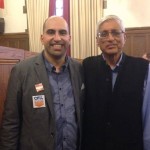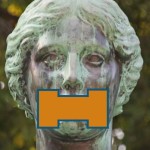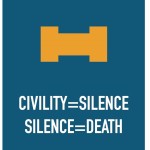The Salaita Affair
Professor Steven Salaita posted several thousand tweets during the 2014 Israeli-Gaza conflict highly critical of Israel, frequently couched in passionate, incendiary language. Over the war’s seven weeks, 71 Israelis were killed, and over 2100 Palestinians, including 500 children. The 2014 fighting constitutes the latest stage in the larger Israeli-Palestinian conflict ongoing since the 1948 war that ethnically cleansed 700,000 Palestinians to create Israel.
To advocate for Israel is the express purpose of the so-called “Israel lobby,” which can be defined as a “loose coalition of individuals and organizations who actively work to steer U.S. foreign policy in a pro-Israel direction.” Not a monolithic entity, it is an extensive network of interlocking, overlapping individuals and organizations lobbying for Israel no matter what it does. Its chief current strategy is to conflate anti-Israeli criticism with anti-Semitism, by falsely labeling critics of Israel anti-Semitic.
The Salaita affair began July 21 when a right-wing, pro-Zionist blog attacked Salaita’s tweets as anti-Semitic, an allegation repeated by the local, editorially extreme right-wing News-Gazette. A Palestinian-American, Salaita had been offered a tenured job in American Indian Studies (AIS) at the university after thorough vetting at all administrative levels. He signed a contract to begin teaching fall 2014, and resigned his tenured position at Virginia Tech. It only remained for the Board of Trustees (BOT) to approve his appointment, customarily a pro forma matter.
As the Salaita case spread like wildfire in the media and blogosphere, Chancellor Phyllis Wise and other officials were flooded with a torrent of anti-Salaita communications. On August 1, after meeting with at least one wealthy Jewish donor, after the BOT told Wise it would not appoint Salaita, but without consulting any faculty or departments, Wise informed Salaita that she would not forward his appointment to the BOT.
after BOT Chair Christopher Kennedy told Wise, “ ,” but without consulting any faculty or departments, Wise informed Salaita that she would not be forwarding his appointment to the BOT because they would not approve it. v 3 By doing so, she violated University Statutes, which explicitly stipulate that in the exceptional case where the chancellor disagrees with a departmental hiring decision, also ratified by the College of LAS, and an associate chancellor in her own office, that the decision be taken back to the department.
From then until August 22, an outpouring of negative letters, emails, newspaper columns, and blog posts were more than counter balanced by a tsunami of pro-Salaita support. On that date, the administration sent two mass emails, one from the chancellor, and one from the president and BOT chair, the latter signed by the top seven administration officials, both UI-Chicago and UI-Springfield chancellors, plus all BOT members. In this unprecedented, circling-the-wagons move, the university clearly intended to end the matter. A “civility” standard, not found in any university policy or statute, was invented, according to which henceforward “civility” would trump freedom of speech and academic freedom. This transparent attempt to stifle dissent was a patently ideological cover to stamp out anti-Israel views.
But instead of cutting protest off at the knees, the twin emails only gave it legs, because now the administration had revealed, Wizard-of-Oz-like, how little there there was to its unfounded, we’re-making-it-up-as-we-go position. Email complaints alleged classroom indoctrination and an unwelcome classroom atmosphere, whereas Salaita’s Virginia Tech teaching evaluations and student testimonials attested the exact opposite. Wise claimed that “unhiring” Salaita was “not influenced in any way by his positions on the conflict in the Middle East nor his criticism of Israel,” but publicly available emails demonstrated the exact opposite.
Salaita opponents allege that his tweets are “racist,” “hate speech” and “incite to violence.” Yes, they are expressed often in vulgar, over-the-top language, but no, they do not cross over the line into hate speech, racism or inciting violence. Constitutionally, Salaita is free to engage in such off-the-job speech, and not be punished on the job for it. It is called First Amendment free speech, and it is not trumped by some made up, tendentious notion of “civility.” More than one of Salaita’s supporters disagree with what he says, but defend his right to say it. That, after all, is the gravamen of free speech and academic freedom. There is no need to protect “comfortable” speech; what needs protecting is “uncomfortable” speech. Uncomfortable thought: what we have here, and elsewhere, is a de facto Palestinian exception to the First Amendment.
But the main charge against Salaita’s tweets is that they are “anti-Semitic.” Yes, Salaita’s tweets are anti-Israel, but they are not anti-Semitic. For many of my close Jewish friends, these issues are extremely fraught. Some favor the Zionist project; others are “liberal Zionists,” still trying to fit the round peg of Zionism into the square peg of Palestinian human rights, including statehood. Still others eschew the Zionist project and advocate for a Palestinian state based on broader, universal Jewish values and traditions. There is an elegiac sense, too, of betrayal, of what Israel – the ultimate safe harbor of persecuted Jews worldwide — has become for many – killer of Palestinian children. Either Salaita’s critics simply do not understand the difference between anti-Israel critique and anti-Semitism, or they reflexively follow the Zionist line of the national Israel lobby conflating anti-Israel criticism with anti-Semitism, now channelled by its de facto local Champaign-Urbana chapter. Not all Israelis, American Jews, or local Jews agree, however. A “University of Illinois Jewish Community Letter in Support of our Professor Steven Salaita” states, “The firing of Professor Salaita is the Israeli attack on Palestine coming to our campus”; it has garnered 100 signatures.
Where UI intended to end the controversy August 22 with its twin missile missives, its stunningly incompetent, ham-handed words and actions had precisely the opposite effect, such that the Salaita affair has become an even bigger national and international cause célèbre. At last count, 17 departments have voted no confidence in the chancellor, president and BOT; over 5,000 faculty worldwide have pledged to boycott UI; more than 18,000 individuals have signed a pro-Salaita petition; over 30 speakers have cancelled campus appearances; two conferences have been cancelled; 16 professional organizations have criticized UI, and the American Association of University Professors has threatened censure.
Anti-Salaita individuals and groups continue to weigh in. Two ads have appeared in the News-Gazette signed by, respectively, 139 and 475 individuals, an overlapping combination of wealthy donors, the local Republican-cum-business booster elite (which has suddenly embraced the “political correctness” of multicultural and gender diversity, along with the warm fuzzy feeling of a welcoming campus and enforced “civility”), and Zionist/Jewish nationalist members of the local Israel lobby.
In a way too little, way too late maneuver, Wise launched a charm offensive taking her case to students and faculty. But she, or her handlers, mishandled it. She pledged to students that she would forward Salaita’s appointment to the BOT, only to later backtrack. She admitted publicly that she should have “consulted with more people,” that “members of the Board of Trustees told her in July that they likely would not approve” Salaita’s appointment, but that that “sentiment… was not my mine.” Such artless confessions hardly strengthened her case. It got so bad that the anti-Salaita side was basically making the pro-Salaita case. But it did not get so bad that the administration felt compelled to change its mind. After a Salaita press conference September 9 at which he eloquently made his case, the BOT meeting two days later voted 8-1 not to appoint him. With this hunkering-down decision, the university guaranteed a court case.
It is hard for anyone on either side not to feel sadness about what has transpired. As individuals, the president and chancellor are “nice people,” as the chancellor’s supporters keep repeating; clearly, they care about the university. It is just that they and other Salaita critics, on and off-campus, care about some members of the university family more than others, namely, engineering and the sciences, donors, putative “community leaders.” Salaita supporters, too, feel sad, but Wise-r. They have Wise-d up, they Won’t Get Fooled Again.
Where Matters Stand
Everyone in academia has heard of individual departments that have become so dysfunctional that they have imploded and gone into receivership, whereby they are reorganized and new leadership is brought in to clean up the toxic mess. But, rarely if ever, has an entire university higher administration, plus BOT, plus a fellow-traveling Academic Senate Executive Committee imploded. “Military people have an evocative if not entirely ‘civil’ term for this kind of self-inflicted cascading catastrophic failure,” noted one Facebook post. “This is a clusterfuck.”
Yet, having soiled themselves in the course of riding the anti-Salaita horse, the Chancellor and administration continue their fouled ride. This is an entirely administration-inflicted wound, a gaping gash that the Chancellor and her culpable consorts have performed on the university of faculty and students. The current situation cannot go on, but it is difficult to see how it cannot go on; how and when the hemorrhaging will be stanched. The Chancellor who wanted so much to create a diverse, inclusive, welcoming campus environment could not have succeeded more in achieving the exact opposite had she tried.
September 20
David Prochaska formerly taught colonialism and visual culture in the UI history department.





